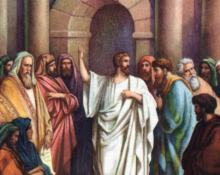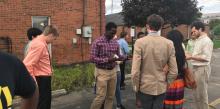News
Listening to a group of middle- to high school-aged girls talking in the potluck line, Jeanene Medley, a member of Potomac Conference's Capital Memorial church in Washington, D.C., heard a small voice ask, “Who is taking these girls under their wing?” It was in this moment that Medley felt called to develop a mentorship program built on the pillars of faith, empowerment, love and sisterhood.
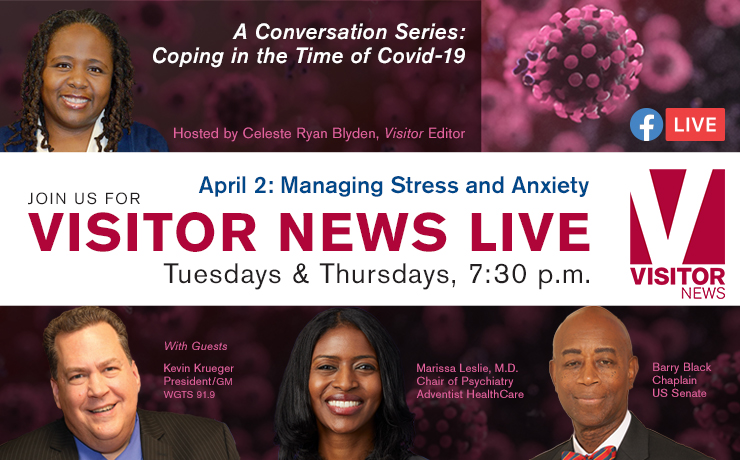 Story by the Visitor Staff
Story by the Visitor Staff
How is the coronavirus impacting life, mission and ministry? How are Seventh-day Adventist members, pastors and leaders in the Columbia Union Conference coping with the disruption and uncertainty? And, despite this crisis, how many are continuing to experience the mission of sharing Christ’s message of hope and wholeness around the union?
These questions will be the subject of a new series of conversations themed “Coping in the Time of Covid-19,” beginning Thursday, April 2, at 7:30 p.m., and can be viewed at facebook.com/columbiaunionvisitor.
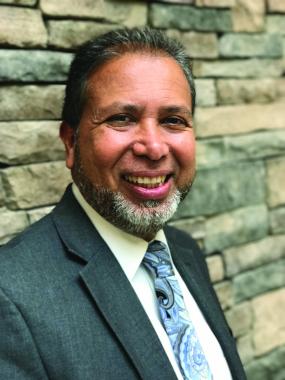 Historia por Jorge Agüero
Historia por Jorge Agüero
La Gran Comisión de Jesús en Mateo 28:18–20 destaca tres verbos importantes: id, haced (discípulos) y enseñar.
Sin embargo, id, haced y enseñar requiere pasos preliminares para cumplir con éxito el mandato de Dios. Jesús no incluyó estos tres pasos en su mandato porque estaba implícito que, al final de su ministerio de tres años, sus discípulos ya los conocían:
Editorial by Jorgue Aguero
The Great Commission of Jesus in Matthew 28:18–20 highlights three important verbs: go, make (disciples) and teach. However, to go, make and teach requires preliminary steps to successfully fulfill God’s command.
go, make (disciples) and teach. However, to go, make and teach requires preliminary steps to successfully fulfill God’s command.
Jesus did not include these three steps in his mandate because it was implicit that, by the end of His three-year ministry, His disciples were well-acquainted with them:
Editorial by Terry Forde
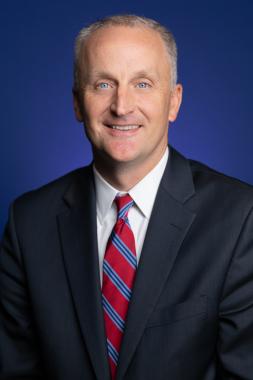 This week I’ve been thinking about heroes.
This week I’ve been thinking about heroes.
My earliest heroes were not people from TV or even storybooks; they were Bible characters like David, Daniel, Esther, and the “Three Worthies” who were thrown into the burning fiery furnace—Shadrach, Meshach and Abednego!
I loved the stories about these heroes and what they stood for. It seemed as if there was nothing that they were afraid of. In today’s environment, I find myself thinking about them again and again.
Editorial por Terry Forde, presidente y CEO, Adventist HealthCare
Mis primeros héroes no eran personajes de la televisión o de revistas de cuentos. Fueron los personajes de la Biblia —David, Daniel, Ester, los tres jovencitos que fueron echados al horno encendido: Ananías, Azarías y Misael.
Me encantaban sus historias y la razón de las mismas. Me parecía que no había nada a lo que tuviesen miedo. En el ambiente actual, no puedo dejar de pensar en ellos.
Story by Benia Jennings
It’s 3 p.m. and 15 cars fill the parking spaces at the Central church in Columbus, Ohio. Teenagers, young adults and older adults gather together, ready to serve the large homeless population on the Westside of downtown Columbus. The group carries hot meals, clothing, hygiene packages, literature, Bibles, bus passes and gas cards with them, and they make it a point to pray with everyone they meet.






